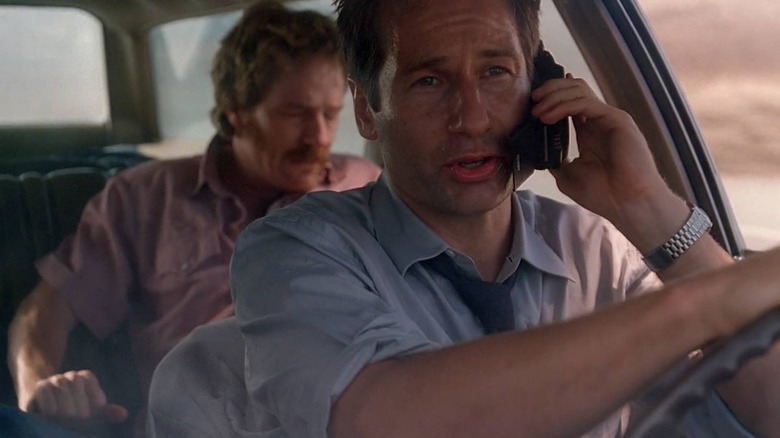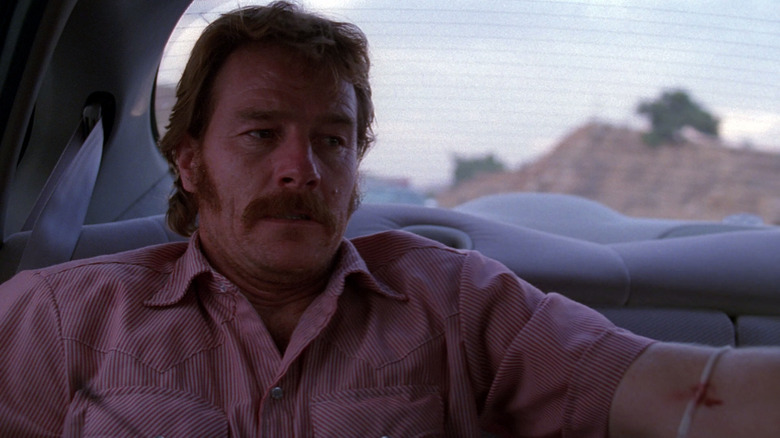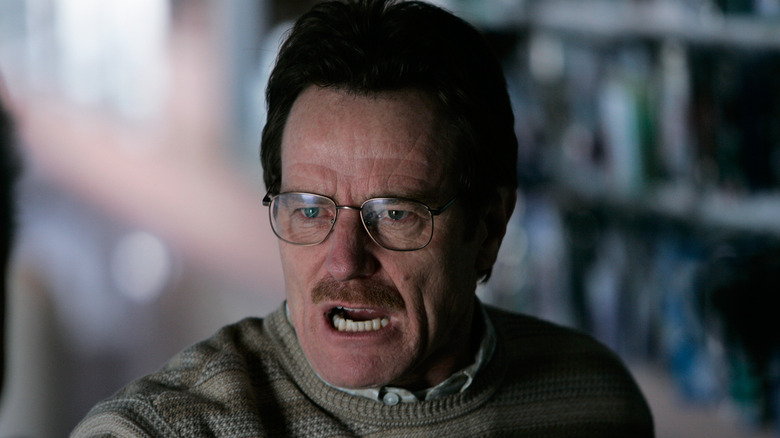How The X-Files Brought Vince Gilligan And Bryan Cranston Together
Vince Gilligan is once again bringing another story to a close. "Better Call Saul," the spin-off series that sprung from Gilligan's "Breaking Bad" airs its final season this year. The series has covered the exploits of unscrupulous lawyer Saul Goodman (played by Bob Odenkirk), before, during, and after the previous show. It's a fantastic dark comedy and drama, showing the rise of Goodman and his former life as the earnest lawyer Jimmy McGill.
As Goodman's amazing and harrowing journey comes to a close, "Breaking Bad" lead characters Walter White and Jesse Pinkman are set to make a brief return. The characters, played by Bryan Cranston and Aaron Paul respectively, will appear in the final season. For Cranston and Gilligan, these appearances will mark another stop sign in a collaboration that began all the way back in 1998.
Drive to Survive
The collaboration began on a single episode of "X-Files," the fan-favorite television series created by Chris Carter. Gilligan joined the show with a single episode in the second season, rising through the ranks to eventually become an executive producer on the series. Along the way, he wrote a total of 44 episodes for the "X-Files" and even co-created its spin-off series, "The Lone Gunmen."
Gilligan wrote the sixth season episode "Drive," where series regulars Mulder and Scully have to figure out what caused the mysterious death of Nevada housewife on live TV. During the investigation, Mulder is kidnapped by the husband, who is suffering from the same ailment that killed his wife. The husband, Patrick Crump, was played by Cranston.
The choice of Cranston during casting was largely down to trying to humanize a monster. Crump is anti-semitic and a believer in conspiracy theories, but the audience also had to lament his death. Cranston pulled off that dividing line in the episode. "We had this villain, and we needed the audience to feel bad for him when he died," Gilligan told the New York Times about the episode and Cranston. "Bryan alone was the only actor who could do that, who could pull off that trick. And it is a trick. I have no idea how he does it."
Walter in the Middle
When it came time to cast Walter White in "Breaking Bad," Gilligan was left with the same problem. Walter White needed to begin the show as a benign, sympathetic figure, but by the end, he also had to convincingly be the show's antagonist. The "X-Files" episode showed Gilligan Cranston's range and his later role as the father on the comedy "Malcolm in the Middle" cemented that perception.
"We needed a guy who could be scary and kind of loathsome but at the same time had a deep, resounding humanity," Gilligan told NYMag. "When 'Malcolm' went on the air, I was like, 'Oh my God, I didn't realize he could be so funny!'"
AMC executives balked at the choice, as Cranston's role on "Malcolm in the Middle" had convinced most of America that he was a comedic actor. In response, Gilligan sent them the episode of "X-Files" with Cranston's appearance, which brought everyone over to his point-of-view. By the time "Breaking Bad" was over, Gilligan was proven right and Walter White was widely accepted as one of the great characters of American television. Let's hope that his return appearance in "Better Call Saul" lives up to that high bar. That shouldn't be hard though, because to be honest, "Better Call Saul" is a better show than its predecessor.


